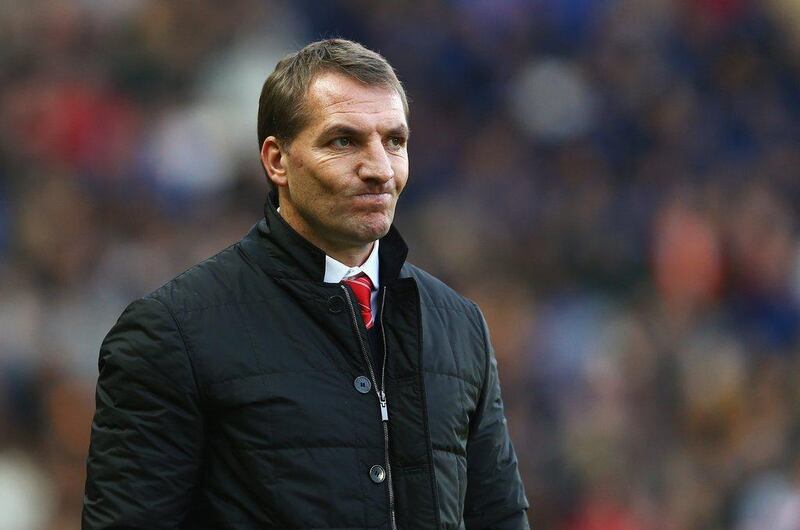Few clubs cherish their history quite like Liverpool. For 90 minutes on Sunday, they revisited their past. Not, however, the trophy-laden era of the 1970s and 1980s as much as the darker days of last season.
The 3-1 loss at Hull City was all-too-reminiscent of defeats to Southampton, Aston Villa and West Bromwich Albion, when as much as the endearing underdogs merited their triumphs, Liverpool appeared utterly unprepared and looked neither as committed nor coherent as the victors.
It incorporated a strange selection which, in itself, felt like a throwback to the first few months of manager Brendan Rodgers’ reign. The Northern Irishman benched his best central defender, Daniel Agger, and rather than use the logical alternative, Mamadou Sakho, recalled Kolo Toure. The rationale, he explained, was that Hull are set-piece specialists.
Instead, the side to score from a dead-ball situation was Liverpool, courtesy of Steven Gerrard’s free kick. A previously goal-shy Hull team struck three times in open play.
Stranger still was Rodgers’ admission that Liverpool’s squad lacks the depth and ability to cope with injuries to Daniel Sturridge, out for up to eight weeks with an ankle injury, and Philippe Coutinho.
After Hull had highlighted his side’s shortcomings, in particular the reliance on Sturridge and an uncharacteristically ineffective Luis Suarez, Rodgers flagged up his own failures.
Because, if Liverpool are lacking in both quality and quantity, he is among the prime culprits. For much of an encouraging 2013, his two great successes in the transfer market, Sturridge and Coutinho, have camouflaged the underachievement of others.
Simon Mignolet has proved an upgrade on the error-prone Pepe Reina in goal this season and the ebullient Toure, who arrived without a fee, has been an astute piece of business.
Yet they are a quartet and Rodgers made 13 major signings since his arrival at Anfield last year. Five of them were among the replacements at Hull who, instead of providing proof of strength in depth, formed the basis of his complaints.
While it is laudable that he is not showing any favouritism toward his own buys, it was notable that the most expensive centre-back in Liverpool’s history, the £16 million (Dh96.5m) Sakho, was an unused replacement at the KC Stadium. So was the £15m midfielder Joe Allen. The £10.5m forward Fabio Borini is on loan at Sunderland.
In particular, there is the issue of Rodgers’s summer dealings. Seemingly the fourth-choice right-back, Jon Flanagan has been reinvented as the starting left-back because Aly Cissokho, borrowed from Valencia, looks a liability.
Some £22m was spent on Iago Aspas, Luis Alberto and Tiago Ilori. Only Aspas has started a league game and he looked far too lightweight to cope with the physicality of the Premier League. Alas, he is already 26.
Alberto is five years younger, but there is some scepticism around Anfield about how much talent the perennial substitute actually possesses. Ilori has been utterly anonymous.
While there may yet be long-term benefits to their signings, the reality is that this season has assumed colossal proportions for Liverpool.
Arsenal’s summer offers for Suarez were rebuffed in part because of the short-term goal of returning to the Champions League. The imperative in the transfer market was to find another match-winner and while Rodgers cannot be criticised for his ambitious attempts to sign Henrikh Mkhitaryan, Diego Costa and Willian, the supposed superstars turned them down and Liverpool paid a commensurate sum for three men who have made a negligible contribution.
Because results had largely been positive, because Suarez and Sturridge were so prolific and because Rodgers’s coaching prowess has improved some of his players, it had scarcely mattered. Now it does.
Liverpool are a progressive club again, but to advance in the way they want, they require a better return from their investments, both past and, with the January transfer window beckoning, future. It is also legitimate to question the effect of one outgoing coach’s impact – assistant manager Steve Clarke’s move to take over at West Bromwich Albion in 2012 – on their defensive solidity. Because Liverpool were poor at the back at Hull.
It was a game when each of the major problems of Rodgers’s reign, from poor recruitment to defensive mishaps and the occasional shocking display, coalesced. This was history repeating itself, an unwanted blast from the recent past.
sports@thenational.ae
Follow us on Twitter @SprtNationalUAE






